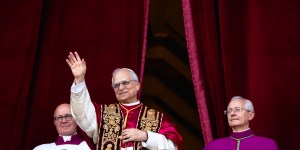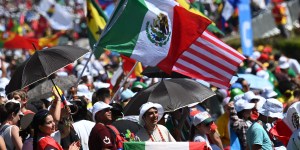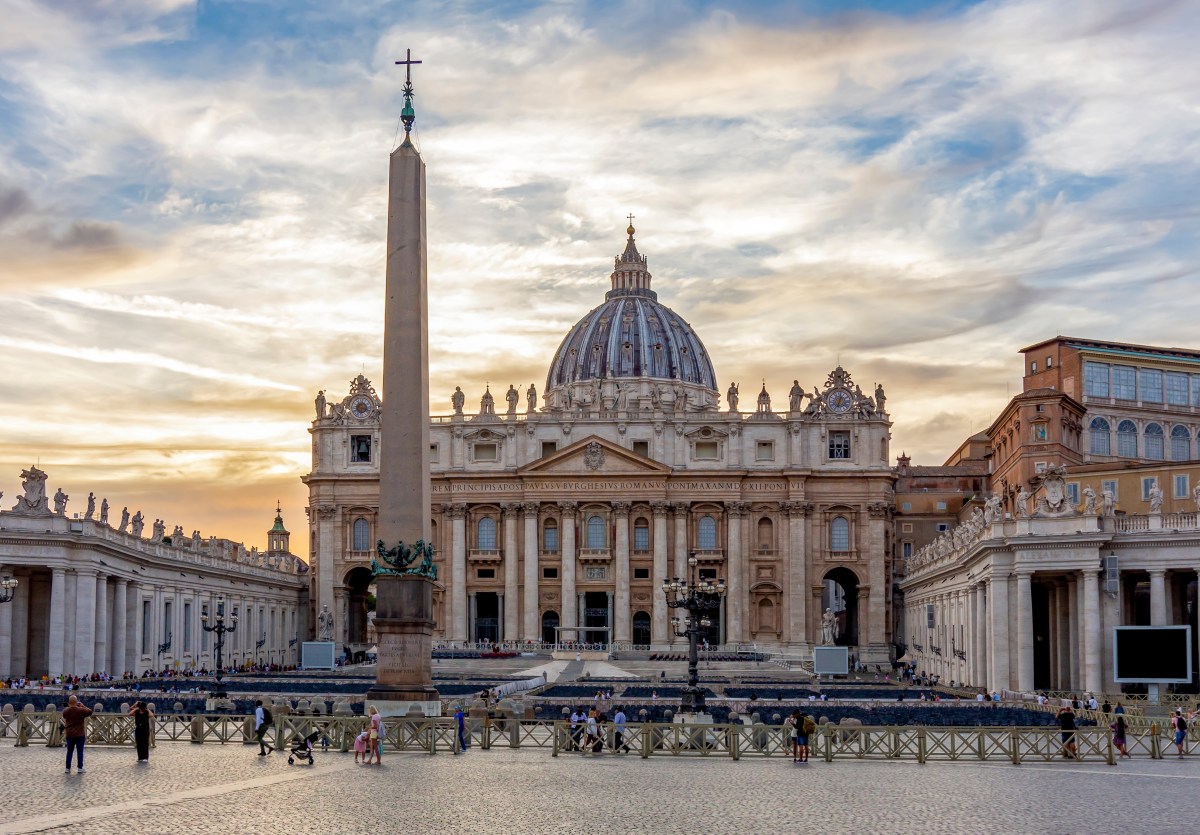Stationed in Rome from 2020 to 2024 for the French newspaper La Croix, journalist Loup Besmond de Senneville spoke with i.Media about his views on the current role of papal diplomacy in the world after the death of Pope Francis and the election of Leo XIV.
He looks back on his time as a Vatican correspondent and offers an original analysis of “the Machine,” the complex administrative and diplomatic apparatus that is the Vatican, with its strengths and weaknesses.
Does the global media frenzy surrounding the funeral of Pope Francis and the election of Leo XIV ultimately show that this institution, once considered obsolete and ineffective, remains fascinating and the bearer of a certain wisdom that transcends political contingencies?
The Vatican has a different relationship with time than most other countries: It exists in the long term, even the very long term. In a completely different vein, Russia and China also exist in the long term, with an imperial outlook. But the papacy embodies something unique, different from all other powers.
The massive presence of heads of state at Francis’ funeral and at Leo’s installation demonstrated the symbolic power of the Vatican and the figure of the pope, of the form of authority he represents. This power is not necessarily functional or operational, but there remains a moral authority, a symbolic force that remains impressive.
Vatican mediation, subject to partisan interpretations
On the particularly sensitive issue of the war in Ukraine, Pope Francis’ positions have been met with misunderstanding. But does the meeting between Trump and Zelensky at his funeral show that the Vatican remains at the center of the game and a valuable interlocutor?
The Vatican remains one of the few places of potential neutrality that can play a mediating role without ulterior motives. Other countries are positioning themselves as mediators, such as Turkey, but it’s clear that they’re doing so with regional ulterior motives. The Vatican, for its part, has no ulterior motives.
It must be acknowledged, however, that little political mediation has taken place recently. The current impossibility of mediation between Ukraine and Russia or between Israel and Palestine has more to do with the image that the belligerents project onto the Vatican, seeing it as either too Catholic from the Russian point of view, too pro-Russian from the Ukrainian point of view, or too pro-Israeli or pro-Palestinian depending on one’s point of view… But this is not based on any real conflict of interest.
The Church as a voice for peace
The first weeks of Leo XIV’s pontificate have been marked both by his incessant calls for peace and by a deterioration in the global geopolitical situation, including the spread of war in the Middle East. Can this be seen as a sign of the Pope’s failure… or, on the contrary, of the radically prophetic nature of his message?
I don’t think we can blame the Pope for the failure of his calls for peace. It’s part of his job to call for peace, in season and out of season… This has been a constant since Benedict XV at least, and we’ve seen it with all the popes of the contemporary era. On the other hand, it is true that we can only note the ineffectiveness of these calls.
But are these calls, in themselves, meant to be “effective?” I’m not sure. They have a symbolic role, constantly reminding us that peace is still desirable. We can’t ask the pope to solve all the world’s problems every morning…
But on the other hand, the fact that there is an institution, the Catholic Church, which believes in peace, in peace with justice, sends a very strong message. And it’s a voice that we need, even more today than before.
Power in weakness
The Holy See combines a form of potent “soft power” with limited means. You went on trips with Pope Francis between 2021 and 2024, with a physically weakened pope who nevertheless went to very complex situations, particularly in Iraq. Did this demonstrate that fragility can also become a tool for “unarmed and disarming” diplomacy, to use the words of Leo XIV?
It’s true that papal diplomacy has few resources, and it’s interesting that Pope Leo XIV expressed his desire for “unarmed and disarming” peace in his first speech. The Holy See practices “unarmed” diplomacy in the literal sense because it has no military apparatus. If diplomacy fails, the Vatican has nothing left: diplomacy is its only tool.
I am nevertheless struck by the contrast between the great expertise of Vatican diplomats — the presence of so many ambassadors accredited to the Holy See proves that it is an important and strategic place — and, at the same time, its limited resources. There are only a few dozen officials in Rome, and the nuncios in many countries around the world work in very difficult conditions. The Vatican therefore combines great symbolic authority and power with a fragility that is greater than one might imagine in terms of its human and financial resources.
Papal diplomacy: Both institutional and personal
Did Francis’ sensitivity as a spokesperson for the Global South clash with the tradition of papal diplomacy, or were his fundamental principles, particularly on disarmament, ultimately in line with an ancient diplomatic tradition?
The pope’s diplomacy is always shaped by a combination of centuries-old Vatican diplomatic tradition and personal convictions. This is true not only in diplomacy, but in all areas of life.
During Francis’ pontificate, through his calls for disarmament and peace, he was consistent with the diplomatic tradition of the Holy See since Benedict XV, the pope of the First World War, and the calls of Pius XII, John XXIII and Paul VI’s famous phrase “never again war.” Regarding the Israeli-Palestinian conflict, Pope Francis’ recognition of the State of Palestine was a significant gesture, but one that is fully in line with the Vatican’s traditional position in favor of a two-state solution.
His originality has been his considerable distance from the United States, not to say a certain anti-Americanism, and a stronger pacifism than his predecessors, with a very clear condemnation not only of the use of nuclear weapons but also of their possession, and therefore the moral invalidation of any principle of deterrence. In terms of pacifism, he has therefore positioned himself as a man of the global South.
The curial reforms of Pope Francis
Has Pope Francis’ ‘radicalism,’ particularly with regard to the overhaul of the Vatican’s finances, weakened the apparatus? Or, on the contrary, has it restored the Holy See as a respectable and reliable interlocutor on the international stage?
I had the impression that Pope Francis’ desire to clean up the Augean stables financially and thus restore financial stability, remove the Vatican from blacklists, and cooperate with Moneyval was fairly well received in diplomatic circles.
But some diplomats didn’t always understand Pope Francis’ method of reforming the Curia. They often said to me, “Still, he’s going a bit too far.” You could sense that these diplomats felt sorry for their colleagues at the Holy See… Diplomats also found it difficult to understand the issues at stake in Cardinal Becciu’s trial, which deals with a very complex case.
But overall, they consider that this whole process showed that Pope Francis was committed to restoring the Vatican’s financial credibility.
Loup Besmond de Senneville has just published a book in French about his experiences: “Vatican secret – Quatre années au cœur du plus petit État du monde” (The Secret Vatican: Four Years at the Heart of the World’s Smallest State).


